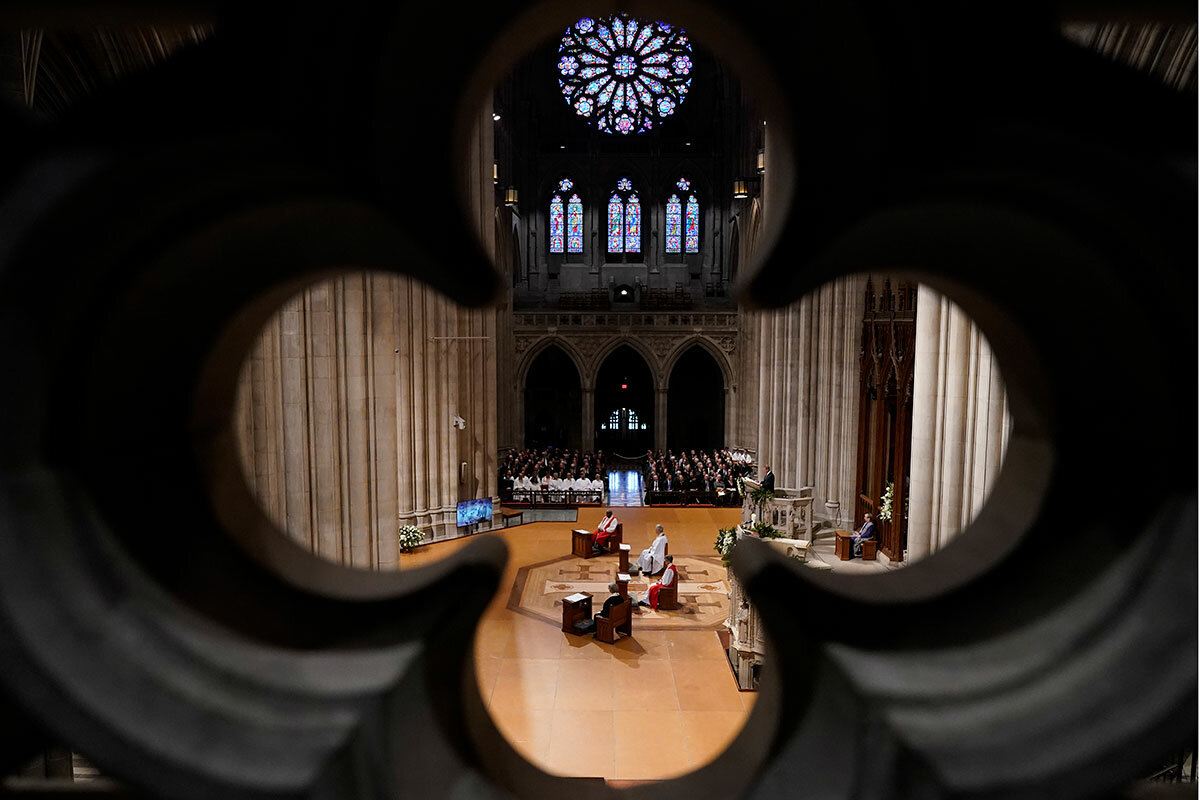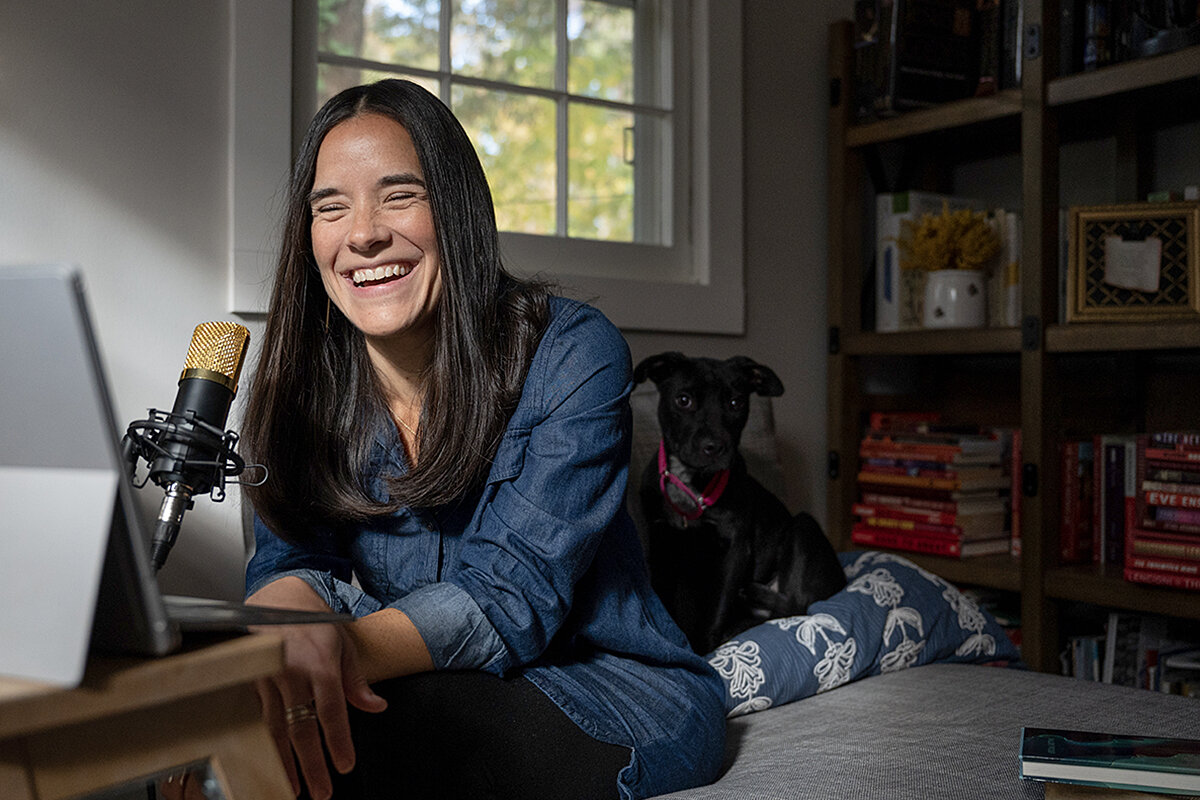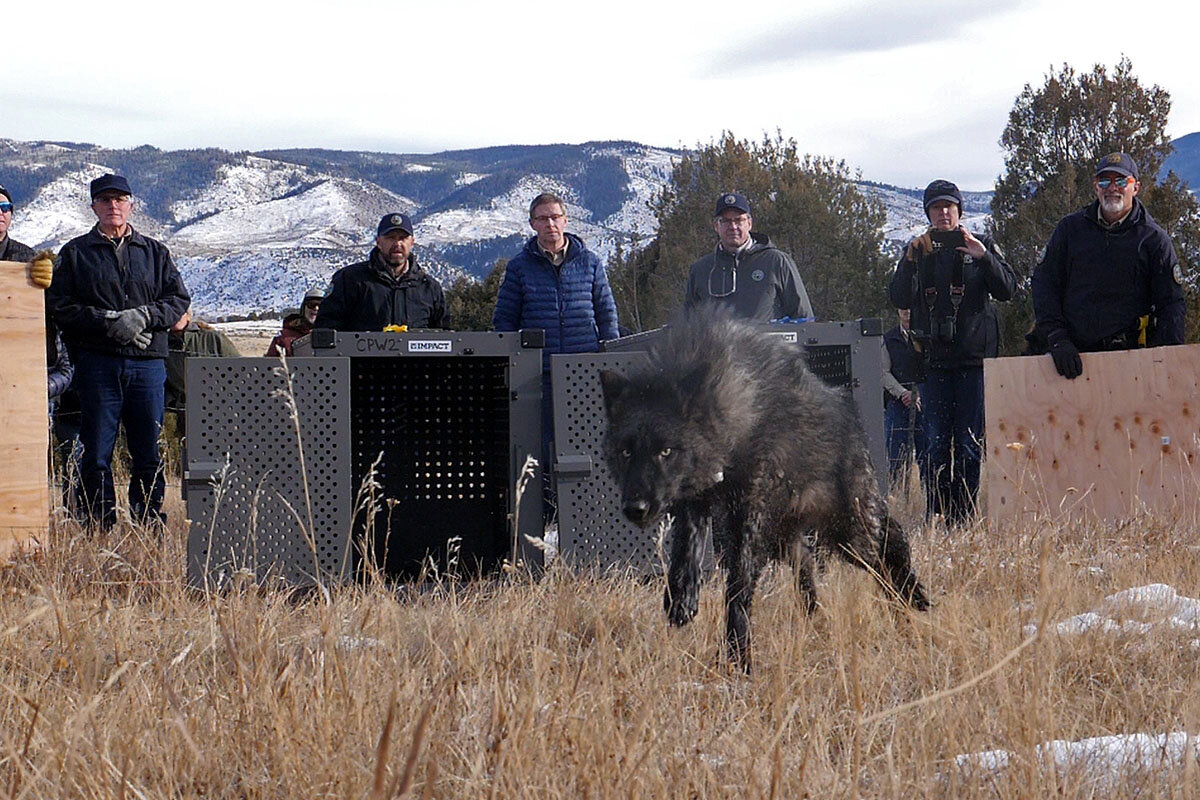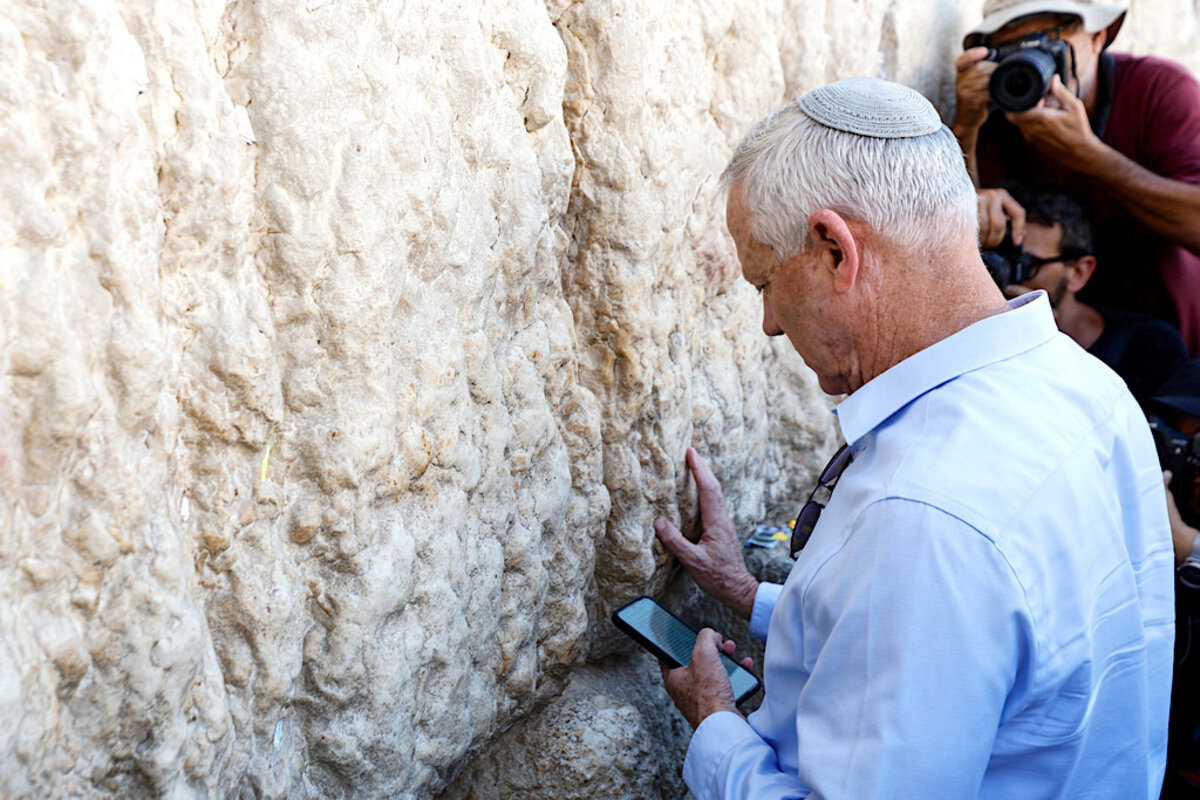What do you do when your house of worship no longer welcomes you, but your faith remains a cornerstone of your life? The Post-Evangelical Collective is charting a new path.

Why is Christian Science in our name?
Our name is about honesty. The Monitor is owned by The Christian Science Church, and we’ve always been transparent about that.
The Church publishes the Monitor because it sees good journalism as vital to progress in the world. Since 1908, we’ve aimed “to injure no man, but to bless all mankind,” as our founder, Mary Baker Eddy, put it.
Here, you’ll find award-winning journalism not driven by commercial influences – a news organization that takes seriously its mission to uplift the world by seeking solutions and finding reasons for credible hope.
Explore values journalism About usMonitor Daily Podcast
- Follow us:
- Apple Podcasts
- Spotify
- RSS Feed
- Download
 Mark Sappenfield
Mark Sappenfield
Can there be compassionate border security? Today, Texas made it a state crime to enter the state illegally. Former President Donald Trump has vowed to shift “massive portions” of law enforcement to the border.
Border vigilance is crucial to safety. The FBI warns of a heightened threat of terrorists crossing the southern U.S. border during the Israel-Hamas war. But get-tough efforts often show little concern for those fleeing unimaginable circumstances. We recently wrote about Italy processing migrants in Albania. Italy says it is a solution. Critics say it passes the buck. Time will tell.
Humanity transcends borders. We can protect those borders, but experience tells us that inhumanity is never an acceptable price.
Already a subscriber? Log in
Help fund Monitor journalism for $11/ month
Monitor journalism changes lives because we open that too-small box that most people think they live in. We believe news can and should expand a sense of identity and possibility beyond narrow conventional expectations.
Our work isn't possible without your support.
Today’s stories
And why we wrote them
( 19 min. read )
( 5 min. read )
Guatemala’s president-elect has promised to fight corruption. Since he won the election, the nation’s justice system has been used by a select, powerful few as a weapon.
The Explainer
( 5 min. read )
Wolves were released in Colorado Monday as required by voters. The effort to reintroduce the endangered species has sparked both controversy and cooperation in the state.
( 5 min. read )
Texas is changing, and so is one of its beloved institutions, “Texas Country Reporter.” How is a show that has captured the heart of the state evolving?
( 5 min. read )
Facing social problems besetting their city in Uganda, a group of friends stopped simply sharing their concerns on social media and decided to do something to solve them. That has saved lives.
The Monitor's View
( 3 min. read )
Prior to the war in Gaza, Israel and Saudi Arabia were on their way to normalizing ties. Although now on hold, that warming positions Riyadh to play a vital role in restoring peace. All the more curious then – as Saudi expert Aziz Alghashian wrote Monday in Foreign Policy – that as the conflict has deepened, the Saudis are “using an overlooked diplomatic tool: silence.”
What they may be listening for is evidence of shifting attitudes among Israelis and Palestinians about their shared future. Hints are coming from both sides. In a meeting with families of Israeli hostages last weekend, Benny Gantz, a minister in Israel’s war Cabinet, said that eliminating individual leaders of Hamas, the Islamist group whose militants attacked Israel on Oct. 7, “is not the point at all. ... We will not erase the idea [of Hamas] except through a different, better idea.”
That tone found an echo. “Isn’t it worth discussing how to manage this conflict with the Israeli occupation?” asked Hussein al-Sheikh, general secretary of the Palestine Liberation Organization, in a weekend interview with Reuters.
The two men may be future partners in peace. Their views underscore how the war in Gaza is moving their societies toward coexistence set on renewed democratic values. Polls show that Israelis and Palestinians hold similar frustrations over corruption, insecurity, economic disruption, and threats to judicial independence.
“To weaken Hamas, I don’t think you’re going to do it by bombs,” Amaney Jamal, an investigator at Arab Barometer who surveys Palestinian views on government and democracy, told Stanford Report earlier this month. “It’s really bolstering and empowering all the other groups, civil society, all the other efforts, and monopolizing on the support for a peaceful resolution to this conflict.”
The war has sharpened demands for new leadership on both sides. When the militants struck in October, Israelis were already roiling over proposals by Prime Minister Benjamin Netanyahu to weaken the authority of the Supreme Court. The Hamas attack increased their unease.
“After a dangerous brush with illiberal, authoritarian rule,” wrote Yohanan Plesner, president of the Israeli Democracy Institute, “Israelis ... will demand firm guarantees that a temporary majority cannot overturn democracy and constitutional safeguards that will enshrine its citizens’ individual rights.” A poll taken last month showed that Mr. Gantz, a retired army general and former minister of defense, would trounce Mr. Netanyahu in snap elections.
Mr. Sheikh also represents a potential shift in leadership. Palestinians have lived under divided rule between the West Bank and Gaza Strip since 2006, their last election. That stagnation, wrote Khaled Elgindy, a senior fellow at the Middle East Institute, in a companion piece in Foreign Affairs, has “become a perpetual source of violence and instability.”
Diplomats are increasingly focused on “the day after” – how postwar Gaza will be governed and rebuilt. “It would compound this tragedy if all that was waiting for the Israeli people and your Palestinian neighbors at the end of this awful war was more insecurity, fury and despair,” U.S. Defense Secretary Lloyd Austin said during a visit to Israel Monday. As Saudis and others watch for an opening, many Israelis and Palestinians see better democracies and better ideas about each other as better protection than fences and guns.
A Christian Science Perspective
Each weekday, the Monitor includes one clearly labeled religious article offering spiritual insight on contemporary issues, including the news. The publication – in its various forms – is produced for anyone who cares about the progress of the human endeavor around the world and seeks news reported with compassion, intelligence, and an essentially constructive lens. For many, that caring has religious roots. For many, it does not. The Monitor has always embraced both audiences. The Monitor is owned by a church – The First Church of Christ, Scientist, in Boston – whose founder was concerned with both the state of the world and the quality of available news.
( 4 min. read )
Recognizing that there are no limits to God’s love for His children empowers us to experience God’s care more tangibly, as a family found when faced with a dire financial situation.
Viewfinder

A look ahead
We’re so glad you could join us today. Before we close, we need to apologize for inadvertently running the same Christian Science Perspective in consecutive issues. You’ll see the one we meant to run yesterday later this week.
As for tomorrow, we’ll look at how Ukraine has become a new testing ground for innovative drone technology. We’ll also have a Q&A with the man some say might be a future prime minister of Britain and we’ll share our film critic’s top 10 picks of 2023.








